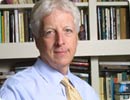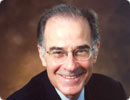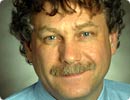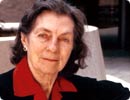

 |
 |
|
Speakers Roy M. Anderson, Ph.D., Imperial College, London, UK Cornelia I. Bargmann, Ph.D., University of California, San Francisco Sydney Brenner, Ph.D., Salk Institute, La Jolla, Calif. Michael S. Brown, M.D., University of Texas Southwestern Medical Center at Dallas, Tex. Jonathan R. Cole, Ph.D., Columbia University Isidore S. Edelman, M.D., Columbia University Gerald D. Fischbach, M.D., Columbia University Joseph L. Goldstein, M.D., University of Texas Southwestern Medical Center at Dallas, Tex. David I. Hirsch, Ph.D., Columbia University Philip Kitcher, Ph.D., Columbia University Eric S. Lander, Ph.D., Whitehead Institute, MIT, Cambridge, Mass. Michael Levine, Ph.D., University of California, Berkeley, Calif. Anne McLaren, Ph.D., University of Cambridge, UK Svante Pääbo, Ph.D., Max-Planck Institute for Evolutionary Anthropology, Leipzig, Germany Colin Renfrew, Ph.D., McDonald Institute for Archaeological Research, Cambridge, UK Jeffrey Sachs, Ph.D., Columbia University  Roy M. Anderson, Ph.D., Imperial College, London View Abstract Biography General Roy Anderson is currently professor of infectious disease epidemiology and head of the Department of Infectious Disease Epidemiology at Imperial College Faculty of Medicine, University of London. His previous positions include the Linacre Professorship and head of Zoology, University of Oxford (1993-98), professor of parasite epidemiology and head of biology, Imperial College (1984-93) and director of the Wellcome Trust Centre for Infectious Disease Epidemiology, University of Oxford (1995-2000). Roy Anderson is a fellow of the Royal Society and a foreign associate member of the Institute of Medicine at the U.S. National Academy of Sciences. He has published over 400 scientific papers on epidemiology, population biology, evolution, and a wide variety of infectious disease agents, including HIV, BSE, Foot and Mouth Virus, vCJD, dengue virus, parasitic helminths and protozoa, and respiratory tract viral and bacterial infections. His principal research interests are epidemiology, population biology, evolutionary biology, biomathematics, demography, and parasitology. He also has a keen interest in science policy and the public understanding of science. He has held a wide variety of advisory and consultancy posts with government departments, pharmaceutical companies, and international aid agencies. Research Over a period of thirty years his primary research focus has been on the development and application of a theoretical framework for the study of the transmission, evolution, and control of infectious disease agents within human communities, animal livestock, and natural ecosystems. This framework, based in part on mathematical and statistical models of the underlying biological and epidemiological processes and in part on experimental studies and field-based observation and control-intervention programmes, has generated a very broad and scientifically robust understanding of the determinants of observed patterns of infection and disease in a wide variety of settings. The key concept developed by Anderson and his collaborators involves the reproductive success of an infectious agent, defined in quantitative terms by the factors that control the typical course of infection within the host and those that determine transmission within communities and populations of hosts. Today, this concept underpins the discipline of infectious disease epidemiology and disease control. Because of this contribution and its wide application to fields as diverse as the study of prion-based diseases, virology, microbiology, and parasitology, Anderson is widely regarded as the world's leading infectious disease epidemiologist. His research is characterized by an interdisciplinary approach that melds theory, observation, experiment, and parameter estimation. His early contributions were summarized in 1991 in a highly cited book, coauthored with Robert May, which has become the standard teaching text in infectious-disease epidemiology. One reflection of his standing internationally was his recent election as an associate foreign member of the Institute of Medicine at the U.S. National Academy of Sciences for his scientific contributions to infectious-disease epidemiology and disease control in human communities. Another is the fact that amongst his 400 plus scientific publications, 40 are in the journals Nature and Science The breadth of his contribution to the creation of a detailed scientific understanding of the processes that determine the applicability and success of different interventions to control morbidity and mortality due to infection is reflected in the application of his work (with a large number of collaborators from many different scientific fields) to many of the most important and pressing problems in disease control worldwide. Examples include the science underpinning the rational design of childhood immunization programmes, the management of antibiotic resistance in hospital and community settings, the impact of single and multiple interventions to control the spread of HIV and lessen the demographic impact of AIDS, the use of community-based chemotherapy to control parasitic helminth and protozoan infections in developing countries, the control of the BSE epidemic in cattle in Great Britain, and, most recently, the control of the 2001 foot-and-mouth epidemic in Europe. He has trained over 55 Ph.D. students and been mentor to a large number of postdoctoral research fellows, many of whom now hold senior appointments in universities and research institutes throughout the world. His research is also highly cited in disciplines other than epidemiology, including ecology and evolutionary biology. In an evolutionary context, he was the first, with Robert May, to point out, via theoretical and empirical studies, that pathogens do not always evolve to be less harmful to their host, but may follow a diverse array of evolutionary paths, including increased pathogenicity. In ecology, his work demonstrated the potential for pathogens to regulate host population growth, and it has greatly contributed to improving understanding of the use of pathogens as biological control agents. One prediction by him and coworkers in the field of human demography at the start of the AIDS epidemic (very controversial at the time of its publication in 1988) has been dramatically borne out by the progress of the AIDS epidemic in sub-Saharan Africa in the past decade. Most recently, he has turned his attention to the study of pathogen population biology within the human host, and the interaction with the human immune system. This research has shed new light on the pathogenesis of infections such as HIV-1, and how best to control viral replication by multi-drug anti-retroviral therapy, and slow the development of drug resistance. This body of work is also being used to help delineate the ideal properties for HIV-1 candidate vaccines, and to elucidate the optimum design of phase III vaccine trails to measure candidate vaccine properties. He has held a series of distinguished visiting professorships at universities throughout the world, including the Alexander Langmuir Professorship at Harvard and the Genentech Professorship at the University of Washington, Seattle. He has also served on a wide variety of international advisory and policy committees under the auspices of the European Commission, the World Bank, the World Health Organisation, and UNAIDS. In summary, his research has created a scientific framework that has a very broad applicability in the fight against infection and associated disease. He has transformed infectious disease epidemiology and the study and implementation of programs of disease control, from a subject that borrowed concepts from the classical noninfectious disease epidemiology, to one with its own unique framework based on the dynamics of transmission, population biology and evolution. Abstract "Host and Pathogen Genetics in the Study of Infectious Disease Epidemiology"The past two decades have witnessed a revolution in the study of the role of genetic factors in the spread and control of infectious diseases. Advances have been linked, in part, to the availability of the full sequence of the human genome, and those of most of the major viral and bacterial pathogens that induce the majority of morbidity and mortality in human societies. In the coming few years, the full sequences of the genomes of the remaining protozoan and helminth pathogens of importance in tropical regions of the world will also be completed. Attention has now shifted to the study of diversity, either across the entire genome in the case of many viruses such as HIV-1, or for selected regions in both host and pathogen that encode for defined properties such as resistance or pathogenicity. Concomitant with this rapid expansion in genetic information has been the development and application of a wide range of new computational, statistical, and mathematical methods to aid analysis and interpretation. Of particular importance are those concerned with linkage, which seek to define how the genetic code in a defined region or regions of the genome is associated with phenotypic characteristics of either host or pathogen. For simple traits, under the control of one or a few genes, the task is relatively straightforward. But for many important phenotypic characteristics, such as susceptibility to infection, many genes are typically involved and associations may be difficult to identify. Laboratory studies with rodent models of infection and immunity reveal much complexity in the interplay of the genetic background of the pathogen and that of its host. Studies involving rodent hosts in which certain genes are deleted (so-called "knock out" mice) reveal a very adaptive immune response, in which a deficiency in one arm of the response due to host genetic background can be negated by an enhanced response involving another line of attack on the pathogen. Many important pathogens also reveal a remarkable ability to evolve rapidly within the host, to evade attack in response to a specific immune response. This has slowed our ability to develop effective vaccines against a series of important pathogens such as the malarial parasites. The subtle interplay between the genetic backgrounds of both protagonists is constantly changing as a result of mutation, recombination and selection. The lecture will focus on recent advances in our understanding of the role of genetic factors in the interplay between host and pathogen populations, with an emphasis on three of the most important causes of morbidity and mortality, namely, HIV-1, Plasmodium falciparum and Mycobacterium tuberculosis. Reference will also be made to newly emerging pathogens, such as the corona virus that induces severe acute respiratory syndrome (SARS). View Full Speaker List Cornelia I. Bargmann, Ph.D., University of California, San Francisco View Abstract Biography Dr. Cori Bargmann received a B.S. in biochemistry from the University of Georgia in 1981 and a Ph.D. in Biology from the Massachusetts Institute of Technology in 1987. As a graduate student, she worked with Robert Weinberg on the mechanism of carcinogenic activation of the Neu/HER2 tyrosine kinase receptor. She subsequently did postdoctoral work with H. Robert Horvitz at MIT, where she established C. elegans as a biological system for behavioral analysis of chemosensation. In 1991, she moved to the UCSF Department of Anatomy as an assistant professor, and has been promoted since then to professor. Since 1995 she has been an investigator of the Howard Hughes Medical Institute. In a series of genetic studies in the nematode Caenorhabditis elegans, the lab asked how sensory recognition and response are encoded by the nervous system. In 1996, the lab identified the first olfactory receptor protein for a specific odor. Subsequent studies have elucidated the mechanisms of odor discrimination, olfactory adaptation, and the matching of odor responses to behavioral outputs. Other projects in the lab have addressed mechanisms of axon guidance and synapse formation, and the genetic basis for social behavior. Dr. Bargmann has been elected to the American Academy of Arts and Sciences and the National Academy of Sciences, and has been awarded the Takasago Award for olfaction research and the Alden Spencer Award for neuroscience research. Abstract "Genes, Behavior, and the Sense of Smell"An animal uses stable neural circuits to generate flexible behavioral responses to its changing environment. Innate genetic programs direct species-specific olfactory and social behaviors, which are modified by its context and experience. We analyze the effects of genes on behaviors in the nematode C. elegans by defining the neurons and neural circuits for specific behaviors, and by asking how genes that affect behaviors affect the assembly and function of neural circuits. View Full Speaker List Sydney Brenner, Ph.D., Salk Institute, La Jolla, Calif. View Abstract Biography Sydney Brenner was born in South Africa and educated at the University of Witwatersrand, Johannesburg (Medicine and Science). He went to Oxford and received a D.Phil. in 1952, working in the Physical Chemistry Laboratory. After a brief return to South Africa, he joined the MRC Unit in the Cavendish Laboratory in Cambridge in 1956 and went on to serve as director of that lab's successor, the MRC Laboratory of Molecular Biology in Cambridge from 1979 to 1987. In 1987 he became director of the MRC Unit of Molecular Genetics and then retired from the MRC in 1992. In 1996 Dr. Brenner founded the Molecular Sciences Institute in Berkeley, California. He is now distinguished professor at The Salk Institute, La Jolla, California.
Abstract "From Genes to Organisms"Understanding how genes specify organisms was the goal of classical experimental genetics, which pursued this end by studying mutations. In fact, such mutations were used to identify the genes, so it is not an exaggeration to say that we pursued the path of discovery from organisms to genes. Now that we have the complete genome sequences of many organisms we can go the other way, but this means first identifying all of the functional elements of the genomes. The most important of these are the control elements of genes. I shall discuss how we should approach this problem. We need to choose the correct level of abstraction, which we propose should be the cell rather than the gene. I will sketch, with a few examples, how we could proceed along this path to construct a system on which a proper theory can be based. View Full Speaker List Michael S. Brown, M.D., University of Texas Southwestern Medical Center at Dallas, Tex. View Abstract Biography Michael S. Brown received a B.A. in Chemistry in 1962 and an M.D. degree in 1966 from the University of Pennsylvania. He was an intern and resident at the Massachusetts General Hospital, and a postdoctoral fellow with Dr. Earl Stadtman at the National Institutes of Health. In 1971, he went to Dallas, where he rose through the ranks to become a professor in 1976. He is currently Paul J. Thomas Professor of Molecular Genetics and director of the Jonsson Center for Molecular Genetics at the University of Texas Southwestern Medical School in Dallas. Dr. Brown is also a member of the board of directors of Pfizer, Inc. and is chairman of its Science and Technology Committee. Dr. Brown and his long-time colleague, Dr. Joseph L. Goldstein, together discovered the low-density lipoprotein (LDL) receptor, which controls the level of cholesterol in blood and in cells. They showed that mutations in this receptor cause Familial Hypercholesterolemia, a disorder that leads to premature heart attacks in one out of every 500 people in most populations. Their work laid the theoretical groundwork for the development of a class of drugs called "statins" that block cholesterol synthesis, increase LDL receptors, lower blood cholesterol and prevent heart attacks. Statins are taken daily by more than twenty million people worldwide. Brown and Goldstein have received many awards for this work, including the U.S. National Medal of Science and the Nobel Prize for Medicine or Physiology. Abstract "Fatricide: When Genes and Diets Collide"Natural selection has failed to provide humans with the genes necessary to cope with the plentitude of foods and the paucity of exercise that characterizes industrial societies. As a result, diet-related diseases such as heart attacks, strokes, obesity, and diabetes are the major causes of death and disability. Through an understanding of our genes and their regulatory vulnerabilities, we and others hope to learn how to modify metabolism so as to protect against these dreaded sequelae. Recent progress will be discussed. View Full Speaker List Jonathan R. Cole, Ph.D., Columbia University Biography Jonathan R. Cole currently is John Mitchell Mason Professor of the University. For 14 years, from 1989 to 2003, he was provost of Columbia University, and from 1994 until this year, he also held the title of dean of faculties of the University. He has spent his academic career at Columbia. Majoring in American history at Columbia College (graduating in 1964), he participated also as a varsity athlete in baseball for four years and as a member of Columbia's freshman basketball team while an undergraduate. He turned to sociology after graduation in large part because of the influence of Robert K. Merton. As an undergraduate he studied with some of the great minds of Columbia in the early 1960s, including Merton, Lionel Trilling, Eric Bentley, Meyer Schapiro, and Richard Hofstadter. Jonathan R. Cole received his Ph.D., with distinction, from Columbia's Department of Sociology in 1969. He has been teaching, conducting research, and been active in academic administration since receipt of his doctorate, which was entitled, "The Social Structure of Science." He served as the director of the Center for the Social Sciences from 1979 to 1987, when he became vice president for Arts and Sciences. After two years, he was named provost of the university.
 Isidore S. Edelman, M.D., Columbia University Biography Biochemist and medical educator Isidore S. Edelman was born in Brooklyn on July 24, 1920. Dr. Edelman was a student at Brooklyn College 1937–39, earned his B.A. at Indiana University, Bloomington, Indiana, in 1941, his M.D. from Indiana University, Indianapolis, in 1944, his D.SC (honoris causa) from Columbia University, New York in 2001. He was a resident of Montefiore Hospital, Bronx, New York, 1947–48; AEC postdoctoral fellow Harvard Medical School 1948–49; research fellow American Heart Association, Brigham Hospital, Boston, 1950–52; assistant professor of medicine at the University of California, San Francisco, California, 1952–54; associate professor of medicine 1954–60; professor of medicine 1960–78; associate director of the cardiovascular research institute 1960–69; professor of biophysics, Samuel Neider Research Professor of Medicine 1967–78; chief medical service, San Francisco General Hospital 1956–58; chairman, Department of Biochemistry and Molecular Biophysics, Columbia University, New York City, 1978–88; Robert Wood Johnson Jr. Professor of Biochemistry, 1990; professor emeritus 1990; director, Columbia Genome Center, 1995–2000. He has contributed articles to professional journals, served to captain in the Medical Corps, U.S. Army, 1945–47. He was elected to the National Academy of Sciences in 1972 and recieved the Homer W. Smith award from the New York Heart Association, 1980; the May H. Soley medal, We. Society Clinical. Research 1980; Distinguished Service Award Columbia University, 1993; A. N. Richards Distinguished Research award from the International Society Nephrology, 1999; California Institute of Technology senior research fellow 1958–59. He was also a fellow of the AAAS, a member of the NAS Institute of Medicine, American Academy of Arts and Sciences, Association of American Physicians, Biophysical Society, Endocrine Society (Eli Lilly Lectureship award 1969, Robert H. Williams Distinguished Leadership award 1996), Harvey Society (president 1989–90), American Society of Biochemistry and Molecular Biology. Achievements include established investigator American Heart Association 1952–57. View Full Speaker List Gerald D. Fischbach, M.D., Columbia University Biography Gerald D. Fischbach, M.D., is executive vice president for health and biomedical sciences; dean of the faculties of health sciences and dean of the faculty of medicine at the College of Physicians and Surgeons of Columbia University. Dr. Fischbach received his M.D. degree in 1965 from Cornell University Medical School and interned at the University of Washington Hospital. He began his research career at the National Institutes of Health, serving from 1966–73. He subsequently served on the faculty of Harvard Medical School, first as associate professor of pharmacology from 1973–78 and then as professor until 1981. From 1981–90, Dr. Fischbach was the Edison Professor of Neurobiology and head of the Department of Anatomy and Neurobiology at Washington University School of Medicine. In 1990, he returned to Harvard Medical School where he was the Nathan Marsh Pusey Professor of Neurobiology and chairman of the neurobiology departments of Harvard Medical School and Massachusetts General Hospital until 1998. He served as director of the National Institute of Neurological Disorders and Stroke, National Institutes of Health, from 1998–2001.
 Joseph L. Goldstein, M.D., University of Texas Southwestern Medical Center at Dallas, Tex. View Abstract Biography Joseph L. Goldstein is currently chairman of the Department of Molecular Genetics at the University of Texas Southwestern Medical Center at Dallas and Paul J. Thomas Professor of Medicine and Genetics. In 1985, he was named regental professor of the University of Texas.
Abstract "Fatricide: When Genes and Diets Collide"Natural selection has failed to provide humans with the genes necessary to cope with the plentitude of foods and the paucity of exercise that characterizes industrial societies. As a result, diet-related diseases such as heart attacks, strokes, obesity, and diabetes are the major causes of death and disability. Through an understanding of our genes and their regulatory vulnerabilities, we and others hope to learn how to modify metabolism so as to protect against these dreaded sequelae. Recent progress will be discussed. View Full Speaker List David I. Hirsch, Ph.D, Columbia University View Abstract Biography
David Hirsh is the executive vice president for research at Columbia University. From 1990 until 2003, he was chairman of the department of biochemistry and molecular biophysics in the College of Physicians and Surgeons of Columbia University. He served as interim dean for research in the Faculty of Medicine from January 2000 to February 2001. Prior to Columbia, he served as executive vice president and director of research at Synergen, Inc., and held an academic appointment at the University of Colorado, Boulder. He received his B.A. from Reed College and his Ph.D. from Rockefeller University in 1968.
 Philip Kitcher, Ph.D, Columbia University View Abstract Biography Philip Kitcher was born in England and obtained his B.A. from Christ's College, Cambridge. He earned a Ph.D from Princeton University in philosophy, history and the philosophy of science. He has taught at Vassar College, the University of Vermont, the University of Minnesota, the University of California at San Diego, and, most recently, at Columbia University, where he is professor of philosophy. He has served as a senior fellow at the Library of Congress, as president of the Pacific Division of the American Philosophical Association, and as editor-in-chief of Philosophy of Science. His many scholarly articles range over topics in the philosophy of science, the philosophy of biology, and the philosophy of mathematics, and he is the author of seven books, the most recent of which are Science, Truth, and Democracy (Oxford University Press, 2001) and In Mendel's Mirror: Philosophical Reflections on Biology (Oxford University Press, February 2003). Abstract "What Genes? Whose Genomes? Which Society?"I want to explore the variety of uses we can make of the great advances in molecular biology. Many people think that genome sequencing, through exclusive attention to human biology, will provide new ways of combating the diseases that afflict people in the affluent world, such as the various forms of cancer. I shall suggest that there are very important projects that involve nonhuman organisms, that combining these projects with investigations into human disease may bring both new strategies of treatment and prevention and disturbing possibilities of genetic testing, and that it is important to think about the global burden of disease. View Full Speaker List Eric S. Lander, Ph.D., Whitehead Institute, MIT, Cambridge, Mass. View Abstract Biography
Dr. Eric Lander is one of the driving forces behind today's revolution in genomics, the study of all of the genes in an organism and how they function together in health and disease. He has been one of the principal leaders of the Human Genome Project.
Dr. Lander earned his B.A. in mathematics from Princeton University in 1978 and his Ph.D. in mathematics from Oxford University in 1981. In addition to his work in biology, he was an assistant and associate professor of managerial economics at the Harvard Business School from 1981 to 1990. Dr. Lander was named a Rhodes Scholar in 1978 and received a MacArthur Foundation Fellowship in 1987 for his work in genetics. He was elected to the U.S. National Academy of Sciences in 1997, the U.S. Institute of Medicine in 1998, and the American Academy of Arts and Sciences in 1999. He has received numerous awards and honorary degrees, and has served on many advisory boards for governments, academic institutions, scientific societies, and companies. In addition to his research, Dr. Lander is an enthusiastic teacher. He has taught MIT's core introductory biology course for a decade and, in 1992, won the Baker Memorial Award for Undergraduate Teaching at MIT. He has also lectured widely to both scientific and lay audiences about the medical and social implications of genetics, and was selected to deliver a special Millennium Lecture at the White House in 2000. Abstract "Beyond the Human Genome Project: Biology as Information"The ability to take comprehensive views of DNA, RNA, and protein across tissues, individuals, and species is driving a revolution in biology and biomedicine. The talk will highlight the power of this approach with a range of recent examples: comparative genome analysis of both mammals and yeasts to characterize both genic and regulatory elements; comparative studies of human genetic variation to understand disease susceptibility and signs of evolutionary selection; comparative studies of RNA expression to classify cancers and predict their outcome; and comparative studies of RNA and protein expression to infer the functions of genes. View Full Speaker List Michael Levine, Ph.D., University of California, Berkeley, Calif. View Abstract Biography Mike Levine is at the University of California, Berkeley, where he is codirector of the newly formed Center for Integrative Genomics. He obtained his Ph.D. from Yale University with Alan Garen, studying steroid-regulated gene expression in Drosophila farvae. As a Jane Coffin Childs fellow he did postdoctoral research with Walter Gehring at the University of Basel in 1982. After a second short postdoctoral stint with Gerry Rubin he started his own lab at Columbia University in 1984. He subsequently moved his lab to UCSD in 1991 and to Berkeley in 1996. During the past twenty years, the Levine lab has studied gene regulation in the early Drosophila embryo, including the analysis of stripe 2 enhancer of the segmentation gene eve-skipped (eve), and the mechanism underlying gradient thresholds of gene expression produced by Dorsal, a material morphogen. Levine was awarded the Monsanto Prize in Molecular biology from National Academy of Sciences in 1996 and was elected into the Academy in 1998. Abstract "Whole-Genome Analysis of Drosophila Gastrulation"We have employed a combination of microarray assays and bioinformatics methods to identify target genes that are directly regulated by the maternal Dorsal gradient in the early Drosophila embryo. Dorsal is a Rel-containing transcription factor that controls dorsal-ventral patterning. As many as fifty target genes exhibit localized expression in response to the Dorsal gradient. Dorsal target enhancers that are coordinately regulated by a similar threshold of the gradient appear to share a common cis-regulatory "code." Several of the newly identified Dorsal target genes control key aspects of gastrulation, including the invagination and spreading of the mesoderm. A model is proposed whereby FGF signaling promotes mesoderm spreading, while a localized TNF signal inhibits spreading and defines the limits of Dpp-mediated induction of the dorsal mesoderm. View Full Speaker List Andrew R. Marks, M.D., Columbia University Biography Andrew R. Marks graduated from Amherst College in 1976 and received his M.D. from Harvard Medical School in 1980. Following an internship and residency in internal medicine at the Massachusetts General Hospital (MGH) he completed two years of postdoctoral training in molecular genetics at Harvard Medical School and two years of clinical cardiology fellowship at MGH. Upon completion of his training Dr. Marks joined the cardiology division at the Brigham and Women's Hospital for three years before moving back to his hometown, New York, in 1990, as an assistant professor of molecular biology and medicine at Mt. Sinai School of Medicine. In 1995 he was named the Fishberg Professor of Medicine at Mt. Sinai and in 1997 he moved to Columbia University College of Physician & Surgeons as director of the Center for Molecular Cardiology and the Clyde and Helen Wu Professor of Medicine and Pharmacology. In 2003 Dr. Marks was appointed chair and professor of physiology and cellular biophysics. In 2002 Dr. Marks was named editor-in-chief of the Journal of Clinical Investigation. His honors include an Established Investigatorship Award from the AHA, membership in the ASCI and AAP, and the Distinguished Clinical Scientist Award of the Doris Duke Charitable Foundation. Dr. Marks' research has focused on understanding how macromolecular signaling complexes regulate ion channel function in muscle and non-muscle systems and on the regulation of vascular smooth-muscle proliferation and migration. His work has contributed new understandings of fundamental mechanisms that regulate muscle contraction that have lead to the discovery of molecular defects that contribute to heart failure and fatal cardiac arrhythmias. Dr. Marks' work on the mechanisms of action of drugs that inhibit vascular smooth muscle proliferation and migration have been translated into novel therapeutics, including the rapamycin-coated stents for coronary artery disease that have substantially reduced the incidence of coronary artery stent restenosis in patients. View Full Speaker List Anne McLaren, Ph.D., University of Cambridge, UK View Abstract Biography
Anne McLaren was born in 1927 and did her undergraduate and postgraduate studies at Oxford University.
Abstract "Bioethics: Embryo Research, Genetic Diagnosis and Therapy, Stem Cells and Cloning."I shall discuss the ethics of human embryo research in relation to the diversity of opinions and legal situations in different countries; the aims of such research, not just for the alleviation of infertility but also for genetic diagnosis and screening; germline gene therapy in contrast to somatic gene therapy; stem cells, embryonic as well as adult; and cloning, for gene therapy and the study of rare genetic diseases rather than for cell therapy. View Full Speaker List Svante Pääbo, Ph.D., Max-Planck Institute for Evolutionary Anthropology, Leipzig, Germany View Abstract Biography
Svante Pääbo studies molecular evolution with an emphasis on human history and origins. In particular, he works on the retrieval of DNA from archaeological and paleontological remains and comparative studies of the genomes and gene expression in humans and the great apes.
Abstract "The Genome as a Mosaic of Human Evolution"The discovery of the structure of DNA opened new inroads to the understanding of our history as a species. We have learned that we are remarkably similar to other individuals as well as to our closest primate relatives. To understand what makes us unique, both as individuals and as a species, we need to consider the genome as a mosaic of discrete segments, each with its own unique history and relatedness to other individuals, to ancestral relatives, and to other species. I will discuss what studies of genetic variation among humans and between humans and our extinct relative, the Neanderthal, have told us about human population history and include consideration of recent discussions of whether racial "classification" of humans has any genetic validity. I will also describe work demonstrating that despite the fact that the DNA sequences of humans and chimpanzees differ only slightly, activity levels of a sizable proportion of genes differ between humans and chimpanzees. I will also highlight results on the evolution of the first gene known to be involved in the ability of humans to use articulate language as well as differences in the olfactory receptor gene repertoire in humans and chimpanzees. View Full Speaker List Colin Renfrew, McDonald Institute for Archaeological Research, Cambridge, UK View Abstract Biography
In 1965 Colin Renfrew graduated from the University of Cambridge with a Ph.D and then became a lecturer then reader in prehistory and archaeology at the University of Sheffield between until 1972. From 1972 to 1981 he was professor of archaeology and head of department at the University of Southampton and then became master of Jesus College, Cambridge, from 1986 to 1997. Since 1981 he has been Disney Professor of Archaeology at Cambridge and, since 1990, Director of the McDonald Institute for Archaeological Research. Elected Foreign Associate of the National Academy of Sciences of the USA 1996.
Abstract "From Genes to Civilization"The term "human revolution" is sometimes given to the transformation accompanying the emergence of our species, Homo sapiens, including the appearance of new forms of behavior and material culture and the development of full linguistic capabilities, which will have been part of the equipment of all of the human groups migrating out of Africa some 60,000 to 40,000 years ago, as well as those remaining in Africa. The puzzle, however (sometimes termed the "sapient paradox") is that more developed and complex forms of human behavior did not appear until about 10,000 years ago. There is so far little evidence that the genetic basis for these more complex behaviors was significantly different from that of the Upper Paleolithic hunter-gatherers of the previous 30,000 years. The lecture will further discuss the sapient paradox. View Full Speaker List Jeffrey Sachs, Ph.D., Columbia University View Abstract Biography Jeffrey D. Sachs is the director of The Earth Institute, Quetelet Professor of Sustainable Development, professor of health policy and management at Columbia University, and a research associate of the National Bureau of Economic Research. He is also special advisor to United Nations Secretary General Kofi Annan on a group of poverty-alleviation initiatives called the Millennium Development Goals. Prior to joining Columbia, Sachs spent over twenty years at Harvard University, most recently as director of the Center for International Development. Sachs became internationally known in the 1980s for his work advising governments in Latin America, Eastern Europe, the former Soviet Union, Asia and Africa on economic reforms. He is author or coauthor of more than 200 scholarly articles, and has written or edited many books. A native of Detroit, Michigan, Sachs received his B.A., M.A., and Ph.D. degrees at Harvard University. Abstract "Plant Genomes, Food, and the Developing World"In the context of increasing demographic stress and ecological degradation, the largely agriculture-based societies of the poorest countries in the world desperately need agricultural intensification. The developed world's scientific knowledge can help boost agricultural productivity, ensure disease control, and alleviate environmental stress in the developing world. Modern genomics and biotechnology must be mobilized to service the world's poorest, especially where there is no market incentive for science to address these issues. View Full Speaker List | |